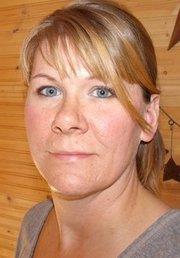Is Registered Nursing More Stressful than Medical Assisting?
Working in healthcare requires a stable personality and ability to multitask and deal with uncertain situations. Despite the challenges of caring for the health of others, many people are drawn to healthcare professions like registered nursing and medical assisting.
Both of these professions provide direct patient care; however, the professions have their distinct differences. Registered nurses often hold much higher responsibility for the immediate and long-term care of their patients and work independently to make critical decisions. Medical assistants are often responsible for the immediate care of patients under the direction of a physician.
Both professions hold their share of stress. Whether one is more stressful than the other depends on the personality of the professional, the situation she works in and her own perception of stress.
What makes registered nursing so stressful?
Work stress and burnout are two significant concerns in the nursing profession. There are several reasons a nurse may feel stress on the job:
- The specialty she works in: Nurses who work in hospitals and long-term care centers (LTC) may experience more stress than nurses working in a clinic setting.
- The amount of patients she must care for at one time: Hospital and LTC nurses often care for multiple patients at one time, which can be demanding and overwhelming. A nurse may have a nurse’s aide to help with her workload, though in some rural hospitals a nurse may be the lone caregiver. In addition to making routine rounds on each patient, including an exam and vital signs, a nurse is also responsible for giving medications, bathing, and lifting, feeding and other personal care of patients.
- Staffing and shifts: Nurses who work in units or clinics with adequate staff may feel less stress than those who work in under-staffed areas. Also, the length of shifts can make a difference; 8-hour shifts may lead to less burnout than 12-hour shifts.
- Dealing with the human element: Nurses in all areas of medicine encounter human suffering, death and traumatic emergencies. Those who work in hospitals and LTC units deal with these situations more closely and consistently than nurses in clinics may. The human element—that which allows a nurse to give compassion and care to the ill and dying—can also be depleting and exhausting. The emotional toll many nurses feel can create stress and tension.
- Caregiver responsibility: Nurses often act as an extension of a physician, and can use their clinical skill and critical thinking to make important patient care decisions. Being responsible for another person’s wellbeing, and feeling the weight of needing to always make the right decisions, can be stressful. In addition, today’s legal system means a nurse risks litigation if she makes a mistake.
What makes medical assisting stressful?
- The specialty an MA works in: Medical assistants work in many different areas of medicine, some of which may be more stressful than others. Urgent care, oncology, cardiology and pediatrics are some areas that offer their own stress triggers. In these specialties, medical assistants are required to work consistently with injured, ill and dying patients. MAs in pediatrics work with sick and injured children, and must become comfortable performing uncomfortable procedures on children, like injections.
- Dealing with patients: Medical clinics are often extremely busy places to work. While patients may be carefully scheduled throughout the day, schedules rarely work the way they should. Patients come late or physicians are late or delayed. Scheduled patients may be required to wait or reschedule which puts the medical assistant in the position of dealing with an upset patient. Patients may also be angry over medical bills, service or care provided by a physician or impressions of the medical facility. Dealing with both well and sick or injured patients can be emotionally trying and stressful.
- Dealing with nursing staff: Despite the strides medical assisting has made as a profession, reality shows that MAs still need to prove themselves as competent professionals. As hospitals and clinics made staffing changes to meet financial and changing patient needs, medical assistants were often brought into traditional nursing roles. Some nurses may not fully understand or respect the role medical assistants’ play in the medical office.
- Changing technology: Medical assistants are among the first in a medical office to utilize new technology, from computer upgrades and programs to medical devices. Constant change and needing to learn to use new technology can be stressful, when combined with the multiple other things an MA must do in a workday.
- Workload: Just as with nurses, medical assistants may juggle many patients at once. It isn’t uncommon for one medical assistant to work with two physicians at a time, meaning she must juggle the patient load for both. Rooming patients, taking histories, handling phone calls and computer work, assisting with procedures and giving medications are just a sample of the responsibilities a medical assistant has during the day. A clinic that is understaffed can only increase stress for all staff involved.
Do These Professions Have Less Stressful Options?
Luckily, both medical assistants and registered nurses have options for working in less-stressful jobs. RNs may choose to leave direct patient care completely and become administrators in nursing homes or hospitals. Other nurses may take jobs in medical insurance as a health case manager; work in legal nursing, or for government agencies.
Medical assistants also have options for changing careers while keeping some medical focus. MAs may choose to work in medical billing or medical records, in healthcare insurance agencies, or work as freelance medical writers.
As with any career, medical assisting and nursing hold a degree of stress. The key is recognizing how much stress is too much, and taking steps to reduce workplace stress before it becomes a problem. Even more, if the stress threshold of caring for others seems too high, working in healthcare may not be your best career choice.

